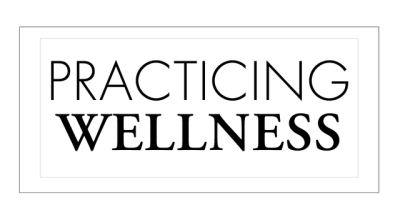
Raising toddlers isn’t so different than working in the mental health industry: it’s a responsibility that yields small victories interspersed with a myriad of defeats. Some of the victories are genuine, like potty training, and some are pyrrhic, like finding a show or movie that your kids will sit still and watch. One piece of advice that you won’t find in any parenting book (not that I’ve read any parenting books): there’s no shame in turning on a movie to buy yourself some quiet time. You do what you can to survive and reuse what works. If that means watching Disney’s “Encanto” for the umpteenth time, so be it.
For those who haven’t seen “Encanto,” the need-to-know is this: a family struck by tragedy was blessed with superpowers. It breaks from the Disney mold by eschewing a traditional villain in favor of exploring complex familial relationships and it’s rife with lessons for people of all ages. During my eleventy-first viewing of this film, I noticed an interesting choice made by the animators (keeping in mind that every choice made in an animated film is intentional): Luisa, a brawny female character endowed with super strength, lifts a large table into place so the family can eat breakfast outside. The next time we see her, she’s taking her seat at the table and she’s carrying five glasses of orange juice.
As an aside, if ever there were a perfect cinematic metaphor for “overworked lawyer,” it would be Luisa. Her musical number following the breakfast scene lays bare the toxic work culture practice of treating employees like expendable commodities rather than human beings. The orange juice she carried was for the rest of the family, and the scene is a subtle nod to her countless obligations. And yet, much to my wife’s chagrin, every time I watch it, I can’t help but say aloud, “Why does the character with super strength have to carry all the orange juice?”
At first glance, it doesn’t seem so farfetched — Luisa is capable, available, and willing, so what’s the problem? To highlight how ludicrous the situation really is, let’s envision a scenario where Los Angeles Lakers superstar LeBron James is asked by the team’s owner to perform in the halftime show. He’s certainly capable. It’s halftime, so we know he’s available, and there’s no way to know if he’s willing without asking. It would definitely boost profits, and if there’s one thing we know about billionaires, it’s that all of them have a Scrooge McDuck-like vault of money that they’re itching to fill. Why, then, do I get the feeling that no one has ever asked LeBron James to put on a show for the fans during intermission?
This phenomenon is known as the curse of competence — the tendency of those responsible for consistently assigning tasks to the most capable people. The curse of competence compels employers to encumber their best employees with the most difficult work, the most time-consuming work, and/or work that falls outside of their main responsibilities. The cliché example would be asking a lawyer to fix the fax machine, but a more common trap seems to befall those with a talent for public speaking: “Hey we loved your presentation so much today that we’d like you to speak about (something tangentially related) … are you available to come out in (a laughably short timeframe)?”
Does that sound familiar?
If you’re a legal stakeholder, hopefully by now you’re picturing the cursed employee in your organization. The practice may initially make them feel trusted, respected, and valued, but that elation usually dissipates when the reality of the assignment emerges. This can quickly lead to dissatisfaction, burnout, and turnover.
Here are a few potential ways to address the curse in your workplace using former Detroit Tigers pitcher and future Hall of Famer Justin Verlander as an example:
-
Be mindful of — and resist — the temptation to over-rely on your ace. If you ask him to pitch too often, fatigue and injury will ensure he isn’t your ace for long.
-
Be mindful of the scope of their responsibilities. Don’t ask him to play left field.
-
Familiarize yourself with employee strengths and interests. His fastball is dominant, but he likes throwing the curveball. Work both into the game plan.
-
Pay up. Money goes a long way towards happiness.1
-
Don’t ignore the problem. Doing so could leave you watching the time and money you invested into professional development winning a championship in Houston.
Lest I be accused of only arming the stakeholder bourgeoisie, here are some actionable steps for the legal proletariat who are cursed with competence:
-
Re-examine your value. While it’s true that overreliance is a sincere form of flattery, it’s also true that compliments don’t pay the bills.
-
Separate your sense of self-worth from what you’re worth to your employer. The era of tying self-worth to hours worked is coming to an end (just one more thing to blame on millennials.)
-
Mind the cost. You might be capable and available, but before you decide if you’re willing, consider the toll on time and energy.
The curse of competence manifests itself when employees don’t feel empowered to occasionally turn down an assignment. I’m not advocating a “not my job” mentality, but rather encouraging people to actually decline those opportunities that you regularly accept and grumble about later. If you catch yourself grousing internally after being roped in to yet another critically important committee meeting, come join the SBM Lawyers & Judges Assistance Program Virtual Support Group,2 where you can do your griping out loud. It’s completely confidential, runs on Wednesday evenings from 6-7 p.m., and is facilitated by yours truly. For more information, email contactLJAP@michbar.org.